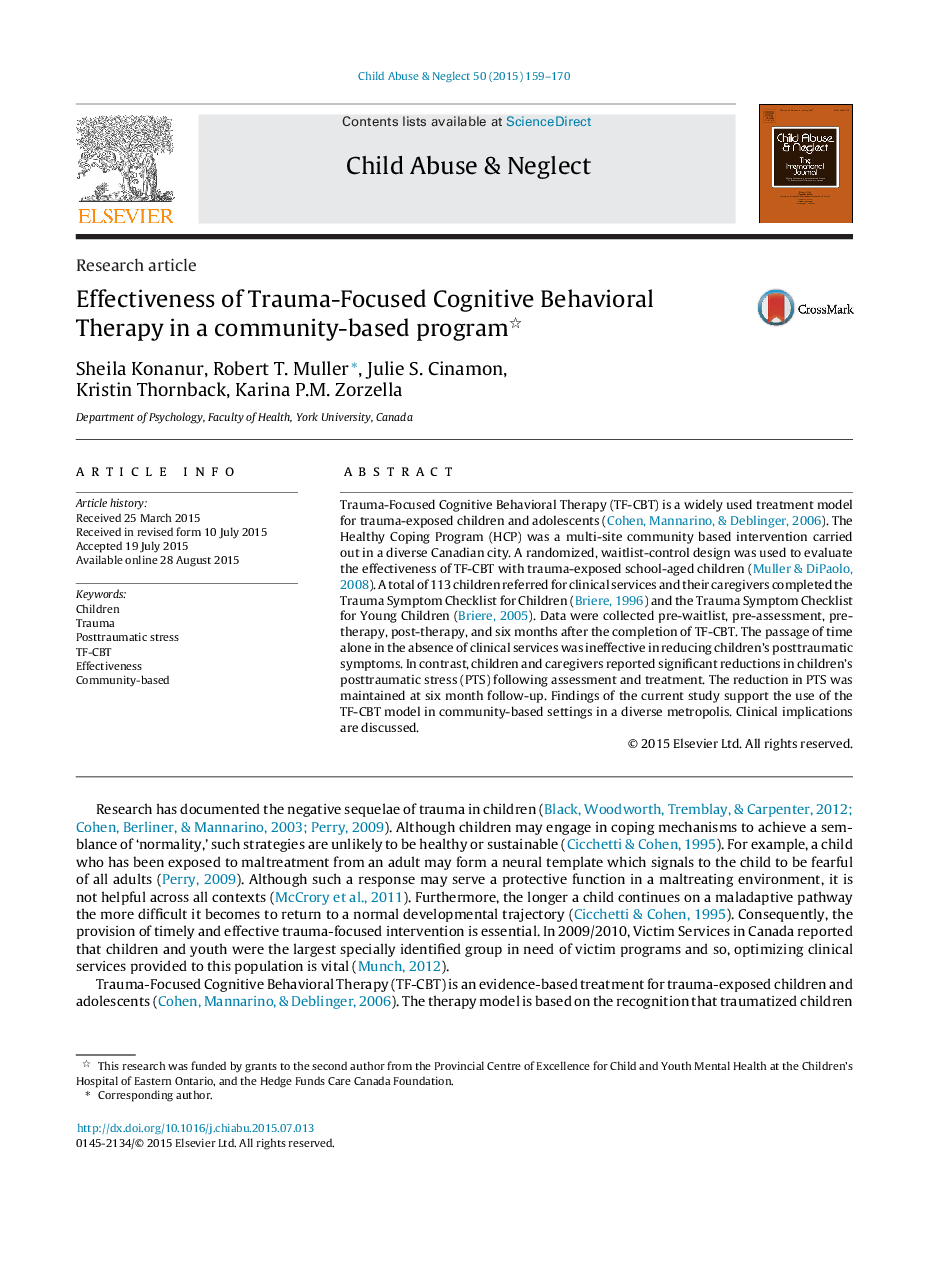| Article ID | Journal | Published Year | Pages | File Type |
|---|---|---|---|---|
| 6832527 | Child Abuse & Neglect | 2015 | 12 Pages |
Abstract
Trauma-Focused Cognitive Behavioral Therapy (TF-CBT) is a widely used treatment model for trauma-exposed children and adolescents (Cohen, Mannarino, & Deblinger, 2006). The Healthy Coping Program (HCP) was a multi-site community based intervention carried out in a diverse Canadian city. A randomized, waitlist-control design was used to evaluate the effectiveness of TF-CBT with trauma-exposed school-aged children (Muller & DiPaolo, 2008). A total of 113 children referred for clinical services and their caregivers completed the Trauma Symptom Checklist for Children (Briere, 1996) and the Trauma Symptom Checklist for Young Children (Briere, 2005). Data were collected pre-waitlist, pre-assessment, pre-therapy, post-therapy, and six months after the completion of TF-CBT. The passage of time alone in the absence of clinical services was ineffective in reducing children's posttraumatic symptoms. In contrast, children and caregivers reported significant reductions in children's posttraumatic stress (PTS) following assessment and treatment. The reduction in PTS was maintained at six month follow-up. Findings of the current study support the use of the TF-CBT model in community-based settings in a diverse metropolis. Clinical implications are discussed.
Related Topics
Health Sciences
Medicine and Dentistry
Perinatology, Pediatrics and Child Health
Authors
Sheila Konanur, Robert T. Muller, Julie S. Cinamon, Kristin Thornback, Karina P.M. Zorzella,
